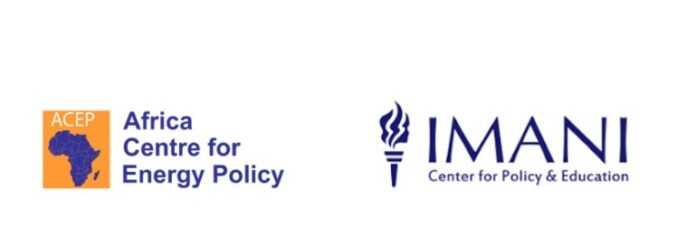The African Centre for Energy Policy (ACEP) and IMANI Centre for Policy and Education have raised concerns about conflicting claims made by the Ghana Revenue Authority (GRA) and Strategic Mobilisation Limited (SML) regarding a controversial revenue assurance contract. The Civil Society Organisations (CSOs) assert that discrepancies exist in the data presented by GRA, particularly in relation to SML’s intervention and its impact on monthly consumption.
In a joint statement, ACEP and IMANI cross-referenced GRA and National Petroleum Authority (NPA) data, challenging the GRA’s assertion that SML’s involvement led to a monthly consumption increase of approximately 100 million litres.
The CSOs argued that the growth rates claimed by GRA are not substantiated by the available data. They also noted a decline in total refined product consumption in the country in the 2021/2022 period, contrary to GRA’s statements.
“We examined these claims by cross-referencing verifiable data from GRA and the National Petroleum Authority (NPA) to determine if GRA’s assertions can be substantiated and are necessarily linked to SML interventions. The GRA’s petroleum product data was extracted from its submissions to the Ministry of Finance for statutory reporting under the Energy Sector Recovery Act (ESLA) from 2018 to 2022. The NPA data, a longstanding industry data repository, was sourced from its own website spanning over two decades.”
ACEP and IMANI
The CSOs further questioned the accuracy of the GHS 3 billion quoted by GRA, highlighting that it cannot be traced to the data sources provided by GRA and NPA. Additionally, they expressed concern about the lack of acknowledgment of a stagnation in consumption and demand, persisting into 2023.
“There is no 33% consumption increase that can be attributed to SML. The consumption growth for the two-year period cited by GRA saw actual growth of 16.5% (8.25% average), which is not extraordinary, comparing it with the growth trends.”
ACEP and IMANI

Examining SML’s claims, ACEP and IMANI conducted a meticulous comparison of month-on-month volumes for key products (AGO, Petrol, and LPG) with data presented by GRA to the Ministry of Finance. Their analysis revealed intentional inflation of data by SML, rendering it unsuitable for tax purposes. Despite this, SML received payments ranging from GHS 700 million to GHS 750 million. The CSOs argued that these payments were needless and could have been utilized for other development efforts.
The CSOs questioned the Minister of Finance’s approach in extending the contract to include gold production, suggesting that it lacks distinctiveness from existing methods and may not contribute effectively to revenue collection. They emphasized the need to strengthen and reform existing institutions rather than creating additional expenses through contracts like SML’s.
ACEP and IMANI expressed doubts about KPMG’s engagement in the matter, citing potential conflicts of interest. They called for an independent investigation by statutory and constitutionally empowered agencies, as well as Parliament, to establish whether the state has been misled through these schemes. The CSOs stressed the importance of a transparent and accountable approach to address revenue assurance issues in various sectors, urging those in power to act to rectify these concerns.
Revenue Assurance Contracts
Revenue assurance contracts are agreements entered into by government authorities or organizations with specialized firms to ensure the accurate and efficient collection of revenue. These contracts are crucial for safeguarding against potential losses, fraud, and inefficiencies in revenue-generating sectors such as taxation or natural resource exploitation.

The primary objective of revenue assurance contracts is to enhance financial transparency, accountability, and the overall effectiveness of revenue collection processes. Engaging third-party entities, often with expertise in auditing and financial management, allows for an independent and objective assessment of financial transactions and reporting.
These contracts typically involve a thorough examination of financial data, compliance procedures, and the implementation of strategies to mitigate risks and improve revenue streams. By employing advanced technology and industry best practices, revenue assurance contracts contribute to the prevention of revenue leakage and unauthorized financial activities.
Governments and organizations enter into such contracts to strengthen their revenue collection mechanisms, instill public confidence, and ensure that funds are utilized for developmental purposes. The nature of revenue assurance contracts evolves in response to changing economic landscapes and emerging challenges, emphasizing the importance of adaptability and innovation in financial management practices.
READ ALSO: ET Mensah Goes Home























